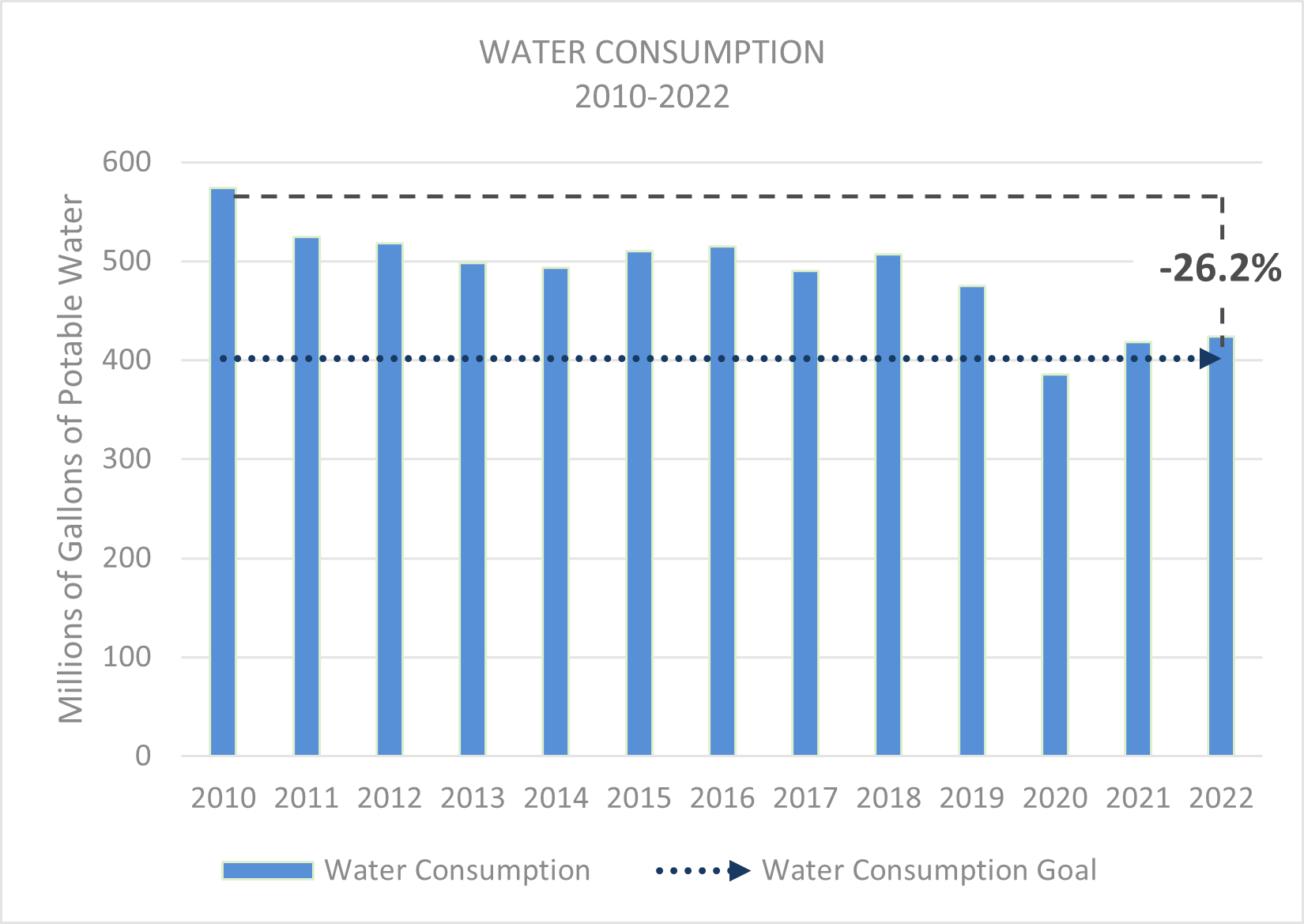Water
UVA has set a goal to reduce water consumption by 30% relative to 2010 levels by 2030.
UVA actively pursues water efficiency and water reclamation projects to reduce water consumption and manages stormwater runoff to mitigate the impact on local waterways. We pursue water reduction by increasing water efficiency in buildings and facilities while identifying opportunities to reclaim water that would otherwise be drained, eliminating the need for additional potable water and reducing sewer costs.
UVA central plants, which produce hot water and chilled water, consume a significant amount of water. About 25% of the potable water at UVA is consumed by evaporation to create chilled water for cooling dorms, classrooms and other spaces. To decrease this evaporation, UVA is investing in heat-recovery chillers that don’t require evaporative cooling to create chilled water. UVA is also replacing older units with higher efficiency chillers. These efforts, in combination with replacing with low-flow bathroom fixtures in buildings, is helping decrease UVA’s water consumption.
Additionally, Facilities Management in 2018 completed a water reclamation project at the Aquatics & Fitness Center which redirects condenser water from the air conditioning systems serving the pool and workout areas to a nearby central energy plant. As of 2022, this system has reclaimed more than 57,000 gallons of water.
The University Hospital South Tower, completed in 2020, has a water reclamation system to collect rainwater and condenser water from the HVAC system from the South Tower and send it to the nearby chiller plant. The plants can use this water in their evaporative cooling process to produce chilled water, decreasing the amount of potable water consumed.
Stormwater
Stormwater management is an integral part of our interaction with our environment. Increasing development and urbanization of our lands has led to changes in the natural environment that include increases in flooding, degradation of water quality, erosion and sedimentation of our waterways.
The University works to reduce these impacts through stormwater management plans. To help keep Virginia’s waterways clean, the University community works together to minimize pollution and litter from entering storm drains.

